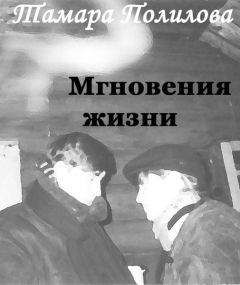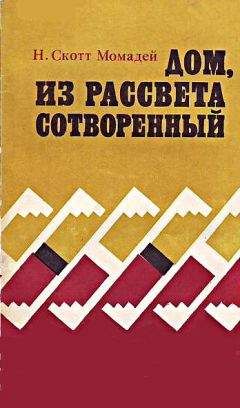Lars Iyer - Spurious

Скачивание начинается... Если скачивание не началось автоматически, пожалуйста нажмите на эту ссылку.
Жалоба
Напишите нам, и мы в срочном порядке примем меры.
Описание книги "Spurious"
Описание и краткое содержание "Spurious" читать бесплатно онлайн.
In a raucous debut that summons up Britain's fabled Goon Squad comedies, writer and philosopher Lars Iyer tells the story of someone very like himself with a "slightly more successful" friend and their journeys in search of more palatable literary conferences and better gin. One reason for their journeys: the narrator's home is slowly being taken over by a fungus that no one seems to know what to do about.
Before it completely swallows his house, the narrator feels compelled to solve some major philosophical questions (such as "Why?") and the meaning of his urge to write, as well as the source of the fungus… before it is too late. Or, he has to move.
W.’s always admired my whining, ‘like a sad chimp, at the limits of its intelligence’, but my depression has taken me beyond that, hasn’t it? ‘You were silent for once’, W. says. I didn’t ring him, or respond to emails … No chatter from me: that’s when he knew things were really bad, W. says.
Of course we’re never really depressed, W. says. We know nothing about real depression. We’re men of the surface, not of the depths. What do we know of those blocks and breaks in the lives of real thinkers? What can we, who are incapable of thought, understand of what the inability to think means for a thinker? And what of real writer’s block — what understanding can we have of that terrible incapacity to write a line for those who have thoughts to set down?
We’re melancholic, that W. grants. Who wouldn’t be? Melancholic, vaguely rueful, knowing we should not be where we are, that we’ve been allowed too much, overindulged … And for what? With what result?
True thoughts pass infinitely far above us, as in the sky. They’re too far to reach, but they’re out there somewhere. Some place where we are not. Some great, wide place where thoughts are born like clouds over mountains.
It’s all our fault, isn’t it? The whole thing is our problem in some way, as though we were behind everything. Yes, we’re responsible. We’re resigned to it: we’re not just part of the problem, we are the problem.
The road is blocked — our road, everyone’s road. We should just get out of the way. But how can we get out of the way of ourselves? We should throw ourselves off the cliffs, we agree. We should get the water taxi out to Mount Batten, and then head up to the cliffs, and …
But what good would it do, our bodies prone and bloody on the rocks, seagulls pecking out our eyes? How could we apologise then? Because that’s what we ought to do — we should spend our whole lives saying nothing but sorry: sorry, sorry, sorry, and to everyone we meet. Sorry for what we’re doing, and what we’re about to do, sorry for what we’ve done … Who would be there to say that for us if we jumped from the cliffs?
The damp is moving towards the living room, I tell W. The dark armies of damp are moving towards the fresh, dry plaster of the living room. When will it breach the door frame and come through? When will it meet with the damp that’s already coming from the other room?
I’m stranded in space between the armies of damp, I tell him. Stranded, as between two high walls of the sea, parted as Moses parted them. On a strip as wide as this room, the living room, still dry, still an island in a sea of damp. And on two sides of the island, the waves are lapping. Soon they will lap over this island too, and it will have sunk beneath the ocean’s smooth surface. Or is it the two lips of a mouth that have opened, and I am the word it is trying to say? I think it’s speaking through me, a word of damp from within, in my frosty, spore-filled breath and in every line I write.
‘So what are you working on?’, says W., knowing the answer. ‘Nothing, as usual … it’s enough for you just to survive from day to day, isn’t it?’ I’m not like him, W. says, I don’t expect much from life, or from myself. — ‘How do you think you’ll be remembered? What’ll they put on your gravestone?’
‘What’s that name Hollywood directors use when they want to disclaim involvement with a film?’, W. asks me. Alan Smithee, I say. — ‘That’s how you should sign your work’, says W. ‘You’re Alan Smithee! Nothing turned out like it should, but it wasn’t your fault! It was everyone else’s fault! It was the system’s fault, for allowing you to write!’
I like to present myself as a victim, W. observes. I want a reason to whine night and day. Is W. a victim? I ask him. No, not really, he says. He doesn’t have the victim mentality that I’ve perfected. — ‘You love feeling like a victim. You like nothing better than to be persecuted’. But, I tell him, he must admit I have been a little persecuted. — ‘How?’, says W., ‘give me examples’, and when I do, he says, ‘you’re no more persecuted than I am! You’re not in the least persecuted!’
Why do I like to feel persecuted? W. muses. It’s because of my general hysteria. I’m an hysteric, W. notes, ceaselessly whining, but he likes me because of this. There’s something magnificent about my whining, he says. Sometimes it reaches a magnificent purity. — ‘You attain whining itself’, says W., ‘the pure “to whine” ’.
W. is a seer, and I am a whiner, he says. It takes a seer to discover what is eternal in my whining. — ‘It’s magnificent’, he says, ‘go on, do some whining. Whine, fat boy. Tell your story’.
Last year, on the banks of the river Tamar (—‘ah, the mighty Tamar’), W. held forth at length on the question of finding your own voice. He thinks he might have found his quite recently, he says. He’s noticed quite a change in his writing.
And what about me? W. reflects. My voice, he says to me, is like a transcendental whining. It’s amazing, he notes, just how much I whine, and how much I give myself to it. — ‘It absorbs everything you are’, said W. In many ways, he admires it, says W. He thinks it’s why he’s drawn to me.
No one should drink as quickly as I do, says W. Or as much. — ‘You drink too much!’, W exclaims. Of course, W. remembers when I barely drank at all. I wasn’t a drinker then, W. says. I lived with monks at the time, which explains a great deal.
For his part, W. is a steady drinker — a heavy drinker, but a steady one. He paces himself — he learned it from Polish drinkers, who begin slowly and continue slowly, but drink through the whole night. Visiting Poland taught W. a great lesson about drinking.
‘There comes a stage in your life when you have to drink’, W. says. ‘There’s nothing for it. The world is shit, life’s shit, and if you thought for a moment, really thought, you’d kill yourself’. W. went through a period of drinking every day, he says, just as I went through one. He had to, he says, it had all become too much for him. He learned it from me, he says, drinking through your despair.
He was a melancholy drunk, W. says, lying in front of the TV with a bottle of wine. I, on the other hand, was an exhilarated drunk, writing rubbish on the internet all night, when I wasn’t out in the pub. Of course, W. never knows when to stop drinking. He never stops until he passes out, he says. Imagine it: passed out, in front of the TV. That’s why he cut down his drinking, W. says.
I ruined my digestive system, W. remembers, that’s why I stopped drinking so much. I was continually on the verge of soiling myself, it was disgusting, says W. When he came to stay and followed my drinking regime, it was exactly the same: he was on the verge of soiling himself. He had a glimpse of the horror of my life, which was completely different from the horror of his life. — ‘Your digestion!’, he remembers. ‘What did you do to yourself?’ No one should have lived as I have, says W. He’s amazed I survived.
The damp can get no wetter in the kitchen, I tell W. The plaster comes off on my fingernails. It’s brown paste. And the smell, the terrible smell. What’s rotting? What’s behind the kitchen units?
The plaster’s to come off Monday, I tell him, and it will be the final encounter. The brick and I. Exposed brick and a man, and the great drying machines. Because the machines are coming to dry the place out. Night and day, they’ll suck the damp from the air. And the plaster will have been stripped away. And there will be nothing between the damp and me. Nothing but damp brick and I in the stripped away kitchen.
The drying company appointed by the Loss Adjuster say they have no idea of the cause of the damp, I tell W. No one understands the damp. It’s Talmudic. The damp is the enigma at the heart of everything. It draws into it the light of all explanation, all hope. The damp says: I exist, and that is all. I am that I am: so the damp. I will outlast you and outlast everything: so the damp.
Everything begins when you understand that you, and you above all, are Max Brod: this, for W., is the founding principle. That you (whoever you are) are Max Brod, and everyone else (whoever that might be) is Franz Kafka. Which is to say, you will never understand anyone else and are endlessly guilty before them, and that even with the greatest effort of loyalty, you will betray them at every turn.
Do I have a real sense of that? W. wonders. Do I really know I am Max Brod rather than Franz Kafka? He doubts it, he says, which is why I never know the extent of my usurpation. For I am a usurper, says W.; I’ve stolen his place and the place of everyone. Who haven’t I betrayed? What crime haven’t I committed?
Still, says W., his burden is to take on my wrongdoings as though they were his own. It’s all his fault, says W., even though it’s all my fault. This is because he is certain he is Max Brod, while I still think I’m Franz Kafka.
You should never hang onto a conversation, says W. Once it’s finished, pfft, it’s finished. — ‘I forget everything you say as quickly as that’, W. says, snapping his fingers in the air. I, on the contrary, remember everything, and not only that. — ‘You make things up’, W. says. I wholly invent conversations we are supposed to have had, but in fact we never did have. I’m a fantastist, W. says, a dreamer, but for all that, I’m not without guilt. I’m no holy fool, W. says, no innocent. A fool, yes, but holy — not a bit of it.
I am neither an Eckermann nor a Boswell, W. says. I’m his ape, says W. and (remembering Benjamin’s comment on Max Brod) a question mark in the margin of his life. Well, more like an exclamation mark, says W., or a shit stain.
Of course, W. never mistakes himself for Kafka, as I do. He’s never thought himself anything other than a Max Brod. But the point is — this is W.’s first principle — the other person is always Kafka, which is why you should never write about them or hold on to their conversations, let alone make them up. Yes, the other person is always Kafka, W. says, even me. He knows that, says W., why don’t I?
You have to know you’re not Kafka, says W., that’s the first thing. But you have to know that the person you’re speaking to might be Kafka, that’s the second. This is why conversation, for W., is always a matter for hope. The very ability to speak, to listen and respond, is already something, he says.
Of course, to speak to the other, to respond, is already to betray. Whatever you say is a betrayal, even if at the same time it is suffused with hope. That the other person might be Kafka is a perpetually present possibility, says W. And that you are also the Brod who betrays Kafka is the destruction of this possibility, its disavowal.
In what sense is he Brod? W. wonders. He knows the answer, he says. He never listens enough. He never gives himself over to what is being said. He always comes up short, says W., very short, which is why he always feels troubled when he speaks, yet at the same time always wants to push conversation towards the messianic.
‘Even you’, says W., ‘even you might be Kafka, which would be a great miracle’. Of course, on the other hand, I’ll never be Kafka for myself, but only for him, my conversationalist. The other person is never other for himself, says W. Or only rarely.
For haven’t we along the way met thinkers — real thinkers — who speak without a concern for themselves, without any sense of self-preservation? It’s as though what they say is indifferent to them, we agree. As though they are borne by thought, thought by it, rather than the other way round.
Yes, we have been fortunate to meet real thinkers, W. and I agree. It was our great good fortune. But wasn’t it also our curse? Didn’t we have confirmed for us that of which we would not be capable, that of which we above all would not be capable? It’s important to know your limitations — on that we’re agreed — but to have them reconfirmed so often; to have the sense of them closing around you like a cage?
We’re being suffocated, we agree. How can we breathe? But an encounter with a real thinker is precisely that breath. How is it possible, the sense that, with a thinker, a thought is shared between us? How is it possible that we believe ourselves to participate in thinking? Thought seems to occur between us. It seems to flow there, as though we were gathered around a mountain stream, around thought in its freshness, eternally streaming.
Ah to be near the source, at the beginning point! To have reached the highest, widest plateau with only the flashing stars above us! That’s where these thinkers bring us; that’s the vista their thought provides. Yes, we have seen the heights; thoughts, pure and fresh, have passed beside us.
Were we the condition of thought? We were only its occasion, alas. Someone spoke to us; we looked interested. Someone spoke; we listened. That was it. And thinking welled up around us like a great flood, and there were fishes in that flood, fish-thoughts streaming by us.
That was it, and nothing more. And with what were we left when the flood subsided? Where were we beached but on the valley-bottom of our stupidity, on the parched sands that no thought might cross?
W. sends me a quotation from his notebook:
For the youth of the world is past and the strength of creation already exhausted and the advent of times is very short. Yea, they have passed by, and the pitcher is near to the cistern and the ship to the port and the course of the journey to the city and life to its consummation.
It’s from the Syriac Book of Baruch, a pseudo-epigraphic text from the period of the destruction of the temple, he says. Then he sends me another:
The world endlessly becomes itself, but because this process is endless the world never is the end towards which it moves. Similarly, God endlessly becomes himself by not being what the world has become, but because the world never becomes itself, neither does God become himself.
That’s from Samuelson’s Judaism and the Doctrine of Creation, W. says. It’s meant to be an explanation of Rosenzweig’s idea of creation. W. says I am endlessly failing to become what I am not. A thinker. A good person. A true friend.
Then he sends me a third, from Mascolo’s Le Communisme, the greatest of all, he says, and to which he attaches no commentary:
One writes neither for the true proletarian, occupied elsewhere, and very well occupied, nor for the true bourgeois starved of goods, and who have not the ears. One writes for the disadjusted, neither proletarian nor bourgeois; that is to say, for one’s friends, and less for the friends one has than for the innumerable unknown people who have the same life as us, who roughly and crudely understand the same things, are able to accept or must refuse the same, and who are in the same state of powerlessness and official silence.
Подписывайтесь на наши страницы в социальных сетях.
Будьте в курсе последних книжных новинок, комментируйте, обсуждайте. Мы ждём Вас!
Похожие книги на "Spurious"
Книги похожие на "Spurious" читать онлайн или скачать бесплатно полные версии.
Мы рекомендуем Вам зарегистрироваться либо войти на сайт под своим именем.
Отзывы о "Lars Iyer - Spurious"
Отзывы читателей о книге "Spurious", комментарии и мнения людей о произведении.

























